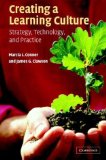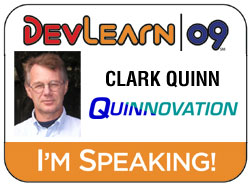 A number of years ago, I co-wrote a chapter with Eileen Clegg called The Agility Factor, that appeared in Marcia Conner & James Clawson’s excellent collection of organizational culture articles in the book Creating a Learning Culture. The focus of the book was on empowering organizations to be nimble in a context of increasing change.
A number of years ago, I co-wrote a chapter with Eileen Clegg called The Agility Factor, that appeared in Marcia Conner & James Clawson’s excellent collection of organizational culture articles in the book Creating a Learning Culture. The focus of the book was on empowering organizations to be nimble in a context of increasing change.
Eileen’s husband is a marine scientist studying deep sea vents and the creatures that live there. In biology, organisms that can live in such extreme heat, or in bitter cold, or extreme salinity, etc., are known as extremophiles. They have a number of mechanisms that allow them to succeed, including stronger ionic bonds, sensing and reacting to changes in the environment, special proteins for extreme circumstances, inoculation mechanisms to cope with toxins, and special partnerships.
In the chapter, we talked about organizational equivalents to these extremophile mechanisms, including tolerating diversity, monitoring the environment, extreme mentoring, and more. We’re talking about it tonite at a special event, and I reread the article to see what we said then and to reflect on it in light of the subsequent years of experience. I saw several ways in which to augment the thinking we had then.
In thinking about ionic bonds, it’s not only about the diversity (polarity) adding strength, but it strikes me that it’s also about alignment. Diversity is particularly valuable when the different abilities and experiences are pulling in the same direction. It’s important to share and inspire a belief in what the vision is.
On the topic of sensing the environment, I’m reminded of the result from the CLO survey Jay Cross and I did to accompany our Chief Meta-Learning Officer article, where 60% of those who responded thought that their people weren’t talking about the outside trends that shape their business. If people aren’t aware, they can’t adapt! There must be support for individuals to not only self-improve, but to be connected the broader trends in their fields and the organization’s area of endeavor.
Starting from the heat-shock proteins that kick in when things are extreme, I’m mindful of how we need a shift from information presentation or skill-creation to learning facilitation and mentoring. Organizations can’t provide everything employees need anymore, but they can provide support for developing skills for learning, and coping. I’m reminded of how Outward Bound got started, where older mariners were surviving situations that younger, presumably healthier ones weren’t. Which reinforces the call for more ubiquitous mentoring that we argued for back then.
The inoculation approach to toxins sparks two thoughts. One, while we need to tolerate diversity in experience and skills, I suspect we can’t tolerate those who do not buy into the vision and the mission. In my own experience, I’ve seen how the naysayers can undermine organizational effectiveness. Yet incorporating new approaches can be extraordinarily valuable. As I’ve argued before, the approach to take is not to try to appropriate so-called best practices, but instead to understand and contextualize best principles.
And finally, in thinking about symbiosis, one of the revelations has been to see the benefits organizations have found by increasing their dialog not only internally, but externally with partners and customers. The advantages of more transparency and communication, if coupled with a sincere desire to truly listen and respond, are considerable.
It’s always a revelation to re-read something written several years ago and reflect on your thinking then. I’m always amazed (and, mostly, pleased) with what I find. Organizations need to reinforce their culture and learning mechanisms to make themselves more agile and more resilient, and that adaptation is possible on principled grounds.

 Based on the principles from our CLO
Based on the principles from our CLO